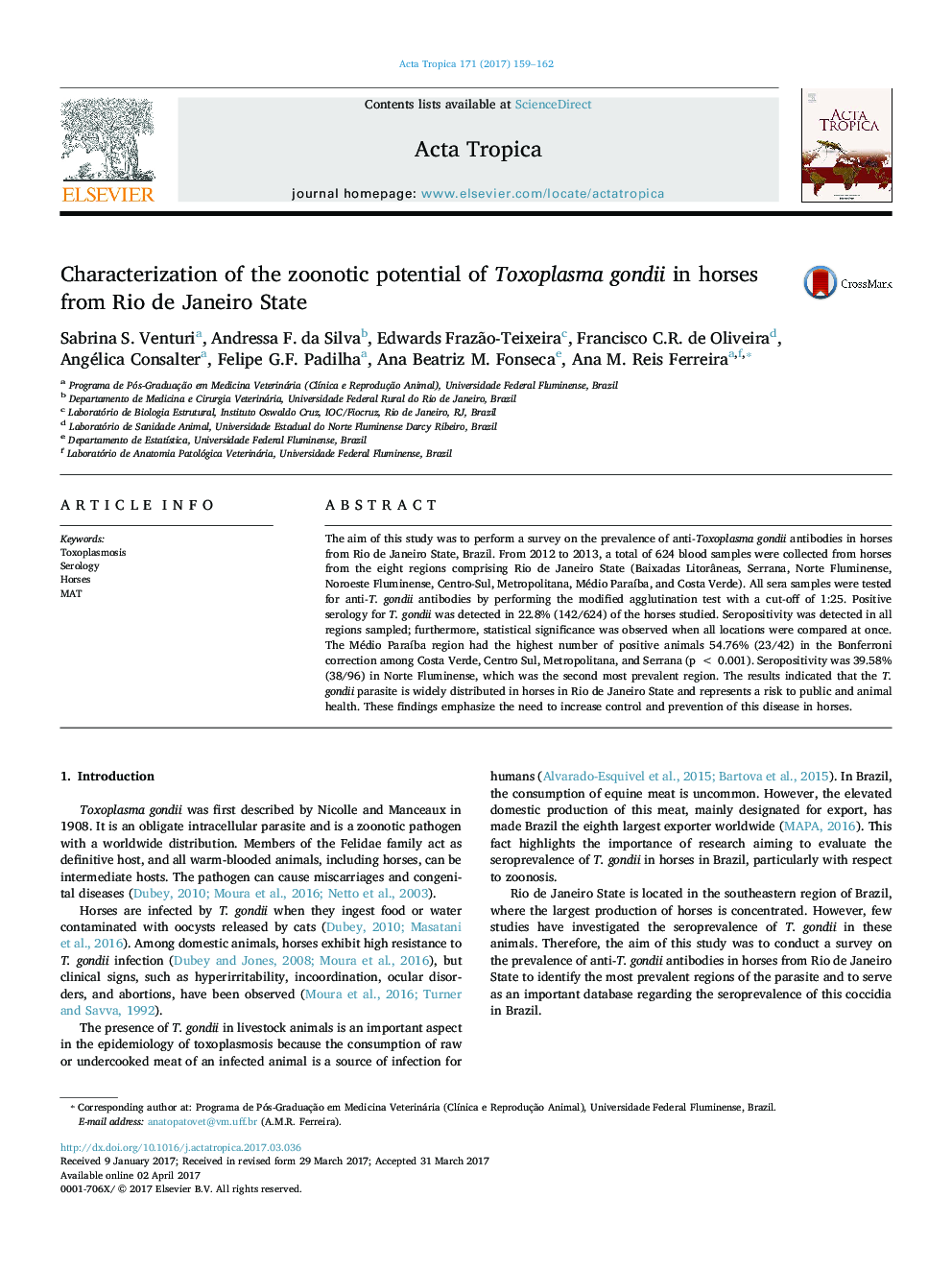| Article ID | Journal | Published Year | Pages | File Type |
|---|---|---|---|---|
| 5671173 | Acta Tropica | 2017 | 4 Pages |
â¢T. gondii parasite is widely distributed in horses in Rio de Janeiro State.â¢T. gondii represents a risk to public and animal health in Rio de Janeiro State.â¢The Médio ParaÃba region had the highest number of positive animals.
The aim of this study was to perform a survey on the prevalence of anti-Toxoplasma gondii antibodies in horses from Rio de Janeiro State, Brazil. From 2012 to 2013, a total of 624 blood samples were collected from horses from the eight regions comprising Rio de Janeiro State (Baixadas Litorâneas, Serrana, Norte Fluminense, Noroeste Fluminense, Centro-Sul, Metropolitana, Médio ParaÃba, and Costa Verde). All sera samples were tested for anti-T. gondii antibodies by performing the modified agglutination test with a cut-off of 1:25. Positive serology for T. gondii was detected in 22.8% (142/624) of the horses studied. Seropositivity was detected in all regions sampled; furthermore, statistical significance was observed when all locations were compared at once. The Médio ParaÃba region had the highest number of positive animals 54.76% (23/42) in the Bonferroni correction among Costa Verde, Centro Sul, Metropolitana, and Serrana (p < 0.001). Seropositivity was 39.58% (38/96) in Norte Fluminense, which was the second most prevalent region. The results indicated that the T. gondii parasite is widely distributed in horses in Rio de Janeiro State and represents a risk to public and animal health. These findings emphasize the need to increase control and prevention of this disease in horses.
